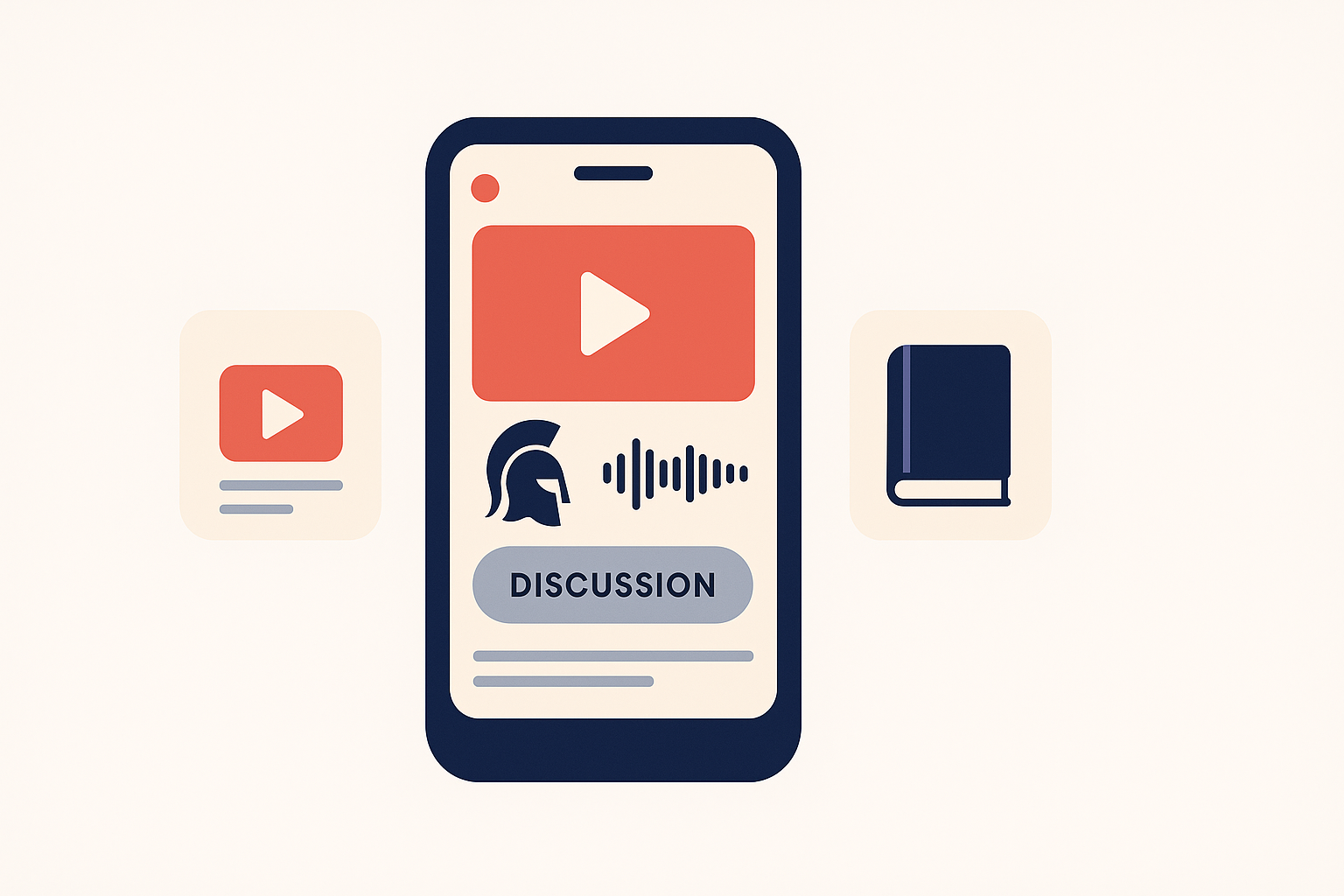Build a History Documentary App with Discussions and Streaming

When people search for ways to enjoy history documentaries online, they’re looking for more than just streaming. They want a space to watch, learn, and join discussions with like-minded history enthusiasts. Instead of juggling multiple platforms, a dedicated history documentary app brings documentaries and community interaction together in one accessible hub.
This is exactly where Audiorista comes in. As a complete documentary app builder, it provides a no-code platform that supports video, audio, and text publishing. It also allows creators, educators, and organizations to add exclusive memberships or subscriptions without technical barriers. In this guide, we’ll explore how you can build a history documentary and discussion app tailored to your audience, while keeping ownership and monetization in your control.
Why build a history documentary app
A history documentary app centralizes everything in one trusted place, ensuring users don’t have to rely on scattered platforms or fragmented content libraries. For students, researchers, and enthusiasts, this format makes it easier to dive deeper into specific periods, events, or cultural themes without distraction.
In addition, the learning experience is greatly enhanced when the app includes community-driven features. Instead of passively watching, users can participate in structured or open-ended discussions, exchange insights, and get multiple perspectives on historical events. This blend of high-quality streaming and interactive dialogue is what makes a history documentary app especially powerful for those serious about historical learning.
Streaming history documentaries
Modern apps make on-demand access seamless, ensuring documentary collections can be streamed from anywhere at any time. For history-focused platforms, this could mean providing curated series on specific themes, showing archival footage that may be hard to find elsewhere, or offering lecture-based content designed for students and lifelong learners alike.
With Audiorista, creators aren’t limited to one format. The platform supports both video and audio publishing, enabling full-length documentaries, short educational clips, or even accompanying podcasts. This flexibility ensures history content can be packaged in the ways audiences consume it best—whether that’s visual storytelling, recorded lectures, or audio-focused discussions. Audiorista also makes it easy to organize content into series, categories, and playlists, allowing users to navigate and discover material efficiently.
Documentary discussions online
While general public forums or social platforms allow for conversation about documentaries, they often lack focus and control. In those environments, discussions are harder to moderate, and content can be buried quickly under irrelevant topics. For creators and institutions, this setting dilutes the connection between their material and the discussions around it.
By contrast, a dedicated app offers a controlled environment where conversations remain centered on the documentaries being shared. That control is particularly valuable for educators running guided discussions, for classrooms leveraging supplemental learning material, or for cultural institutions building engaged communities around history topics. Within the app, discussions can complement lessons, highlight key themes, and reinforce knowledge in ways that scattered online discussions simply can’t match. Audiorista enables integrated community features such as discussion threads, comments, and member interaction, all within your branded environment.
How to build your history app
Creating a history documentary app no longer requires custom development or large tech budgets. With a no-code builder, the process is straightforward and designed for content-focused organizations. First, you select the features needed—streaming capabilities, discussion modules, subscription options—then move into branding and customization. The end result is an app that feels entirely yours, without depending on public hosting platforms.
Using the Audiorista Video App Builder, you can create your own history streaming app that combines professional video presentation with fully integrated community tools. Because it’s fully white label, your app carries your brand, not a third-party platform. This model contrasts with public video hosting or open streaming platforms, where content ownership and monetization options are typically restricted. Audiorista provides flexible monetization, including subscriptions, memberships, and pay-per-view models, so you maintain control over your revenue streams.
The future of educational content apps
As the digital media landscape evolves, more creators and organizations are turning toward customized educational platforms to differentiate themselves. Trends show that learners and audiences are increasingly seeking content delivered in app formats that combine convenience, branding, and interactivity.
Reports such as the best no-code app builders guide explore how this model is set to grow further by 2025. White label educational apps are expected to dominate as institutions and creators look to keep control over their content, community, and monetization strategies. For history content in particular, this shift means more ownership over how documentaries are preserved, displayed, and discussed within rich digital environments designed specifically for learning and engagement. Audiorista’s platform is built to support this trend, empowering creators and organizations to launch, scale, and manage their own branded apps without technical hurdles.
Turn your history documentaries into a branded streaming and community app today with Audiorista — start building now.


